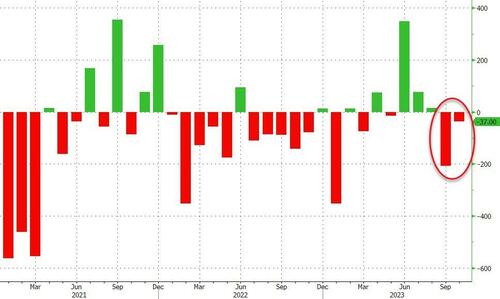For the past 18 seasons, viewers of the BBC television show “Who Do You Think You Are?” have been watching with interest as guests from all walks of life discover surprising facts about their genetic heritage. Celebrity guests on the program often draw the highest ratings, as many people are genuinely curious about who has royal genes and genetic lines which produced wealthy, famous, and talented people.
On a recent episode of the show, English comedian Josh Widdicombe found out, much to his surprise, that he was related to Edward I , who served as king from 1272 until his death in 1307. Like most others who’ve discovered they were descended from kings and queens, Widdicombe had no idea he was related to such a well-known figure from British history.
Interestingly, Widdicombe is only one of several celebrities and entertainers to have royal genes and be linked genetically to ancient kings and queens. For example, soap actor Danny Dyer recently found out he was descended from Edward III . Meanwhile, comedian and actor Alexander Armstrong was told by genealogical researchers that he was a descendent of William the Conqueror . And like Josh Widdicombe, the rower Sir Matthew Pinsent also discovered that he is a distant relative of Edward I.
Is all this just an amazing coincidence? Or does it say something about the genetics of those who seek fame or wealth, regardless of their line of work? In truth, it is neither an odd coincidence nor an argument for genetic determinism. What it actually reveals is that the further back in time someone of European descent searches, the more likely they are to find a genetic connection to an ancient European king or queen.
At a certain point, the probabilities rise so high that the odds of finding a genetic connection to royalty reach 100 percent. So, these celebrities are not unique at all. They are related to royalty because everyone has royal genes to some extent, whether the relationship is revealed during organized ancestry searches or not.

Josh Widdicombe, above, was surprised to discover that he had royal genes. (glastocabaret / CC BY 2.0 )
The Surprising Ubiquity of Ancient Royal Genes
Genealogical experts who are aware of the math know that finding a genetic connection to royalty is nothing remarkable. “It’s not that uncommon,” stressed Graham Holton, a postgraduate genealogy tutor from the University of Strathclyde in Glasgow, when speaking to BBC News . Holton himself is related to Edward I, a trait he estimates up to two million living people share.
Attempts to trace bloodlines can sometimes prove these associations, but not always. Genealogical services have access to extensive historical records, but those only go back so far before thoroughness and accuracy come into question.
Royal lineages tend to be somewhat easier to establish, since records of aristocratic births and deaths are more likely to have been tracked and saved for long periods of time. But even here great uncertainty may exist, since the extramarital affairs and other dalliances of the elite and powerful often produced children that were not officially acknowledged. This would be especially true if the secret relationships matched royals and aristocrats with those considered to be of lower status.
“Whether you can actually prove it [a genetic connection to royalty] is one of the issues,” Holton confirmed. “Probably lots of people who are would not be able to prove it with documentary evidence.” But it isn’t really necessary to trace a person’s genetic heritage back indefinitely to draw conclusions about their bloodlines and potential royal genes.

If you go back far enough, does everyone have royal genes? ( Irina / Adobe Stock)
Are We All Related?
As family trees move back through time, from parents to grandparents to great-grandparents and beyond, a person will begin to accumulate a tremendously large number of long-deceased kin. This increases the chances that individuals, who today share no social ties actually share the same distant relatives, since there aren’t an endless number of people who’ve lived and died in the past.
A demographic research organization based in Washington, D.C. called the Population Reference Bureau estimates that approximately 107 billion anatomically modern humans have lived on the earth since 50,000 BC. If you do the math, this comes out to 15 deceased individuals for every one person alive today.
Needless to say there just simply isn’t a big enough population for everyone to have a separate lineage. Approximately 300 generations of humans have lived and died in the past 6,000 years alone, which reveals the astronomical number of ancestors each person’s family tree would have to include if they were to complete a thorough genealogical examination . There must be significant genetic overlap between everyone’s family trees, even if it doesn’t show up on modern genealogical searches.
While this may be something we can understand intuitively, mathematicians who’ve examined the issue more deeply have reached conclusions that could push us outside our intuitive comfort zones.

What it also means is that having royal genes doesn’t make someone special or unique in any way. ( rockindaddy / Adobe Stock)
Mathematics and Our Shared Genetic Heritage
According to National Geographic , the groundbreaking study in this area was published in 1998 by Joseph Chang, a statistician from Yale University. Professor Chang performed a definitive mathematical study, which was designed to answer a specific and fascinating question: how far back would a genealogical study have to go before it would find a common ancestor for all Europeans alive today?
Chang constructed a mathematical model to help him answer this question. After running the numbers, he was surprised to find that a common ancestor for all Europeans would have existed as recently as 600 years ago, or just a few decades before Columbus set out on his history-altering voyage across the Atlantic. This means that if everyone of European ancestry could trace their ancestry back to the year 1400, each family tree would include that one particular individual.
And if the tracing were to continue, Chang showed, the number of people showing up in everyone’s family tree would increase. That process would continue, until about the time when the genealogical survey passed from the second millennium AD into the first. At that point, each person’s family tree would include 80 percent of those who were alive in Europe in 999 AD, give or take a few decades. It would also include 80 percent of those who’d lived in earlier periods.
The number is limited to 80 percent because 20 percent of those living at the time either didn’t have children, or had children or grandchildren who didn’t have children, which therefore allowed the family line to die out. But the remaining 80 percent would be related to every European who currently resides on the earth (and to all Canadians, Australians, New Zealanders, and North and South Americans who had European ancestors).
Such a conclusion may seem impossible to believe, but the mathematics backs it up. “Pedigrees begin to fold in on themselves a few generations back,” wrote Adam Rutherford, a British geneticist who expanded on Chang’s work and its implications in his award-winning 2017 book A Brief History of Everyone Who Ever Lived . What this means, he stated, is that “you can be, and in fact are, descended from the same individual many times over.”
To illustrate the mathematics more fully, in 2015 Rutherford published an article in The Guardian where he explained how every single European living today was descended from Charlamagne the Great , the legendary founder of the Carolingian Empire who united western and central Europe in the late eighth century. By definition, this means all living Europeans carry royal genes, whether they know it or not.

Imperial Coronation of Charlemagne the Great, by Friedrich Kaulbach. ( Public domain )
We All Have Royal Genes
In a 2002 article published in the Atlantic, journalist Steve Olson explained how the findings of Chang’s research would apply not just to modern-day Europeans, but to virtually everyone living on the other side of the Atlantic Ocean. “Almost everyone in the New World [aka the Americas, including Bermuda and the Caribbean] must be descended from English royalty,” Olson wrote, “even people of predominantly African or Native American ancestry, because of the long history of intermarriage in the Americas.”
Factoring in contacts between peoples of all regions, Olson explored the ultimate implications of Chang’s study, speculating even beyond what the mathematics had already shown. “Everyone of European ancestry must descend from Muhammad,” he deduced. “ Confucius, Nefertiti, and just about any other ancient historical figure who was even moderately prolific must today be counted among everyone’s ancestors.”
If these mathematical studies are indeed correct, it means that everyone reading this article has royal genes, and likely many times over. What it also means is that having royal blood doesn’t make someone special or unique in any way, including the royal genes of Josh Widdicombe . This is of course what critics of monarchy as a form of government have been saying for as long as there have been kings and queens anywhere in the world.
Top image: Do you have royal genes? Source: master1305 / Adobe Stock
By Nathan Falde
Related posts:
Views: 0
 RSS Feed
RSS Feed

















 November 3rd, 2021
November 3rd, 2021  Awake Goy
Awake Goy 





 Posted in
Posted in  Tags:
Tags: 
















